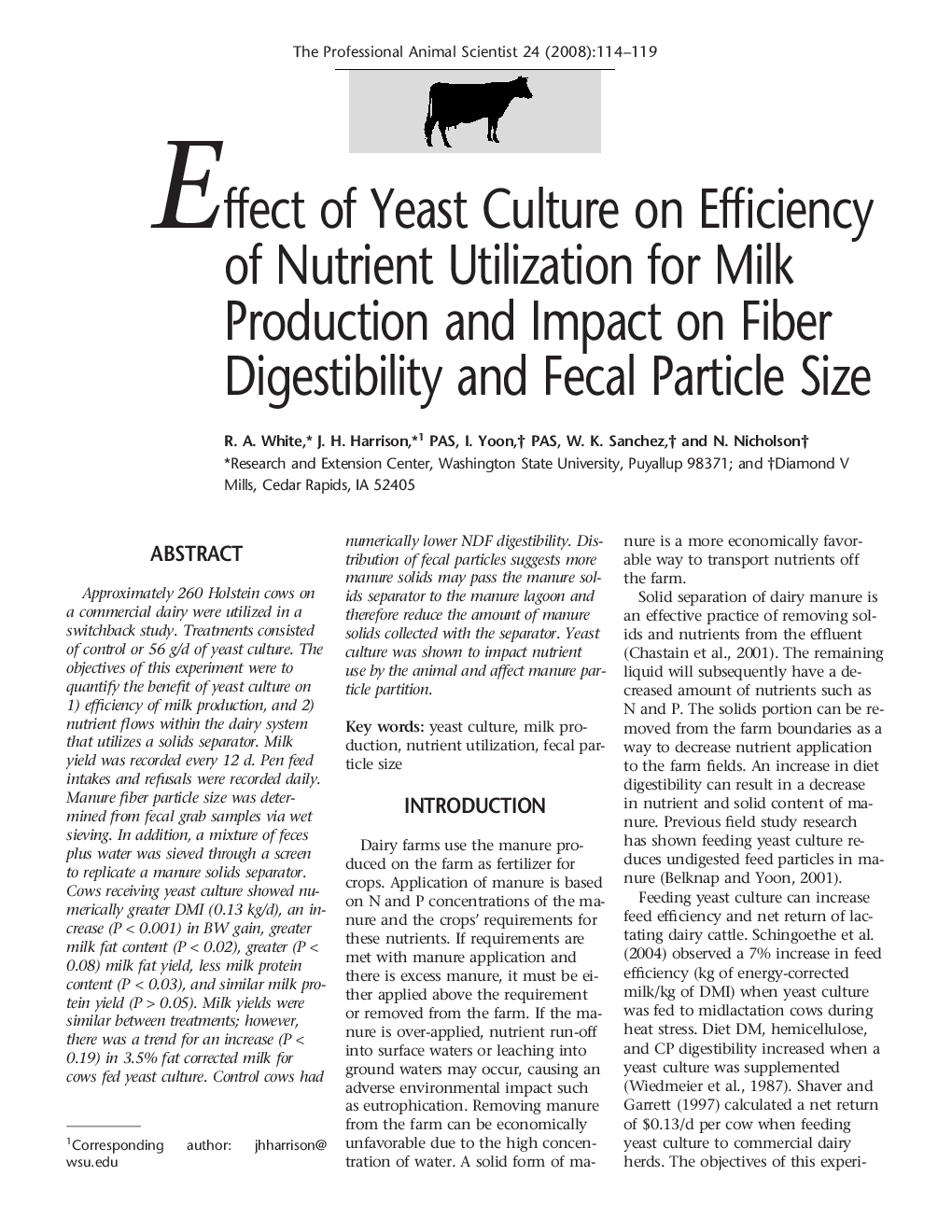| Article ID | Journal | Published Year | Pages | File Type |
|---|---|---|---|---|
| 2454564 | The Professional Animal Scientist | 2008 | 6 Pages |
Abstract
Approximately 260 Holstein cows on a commercial dairy were utilized in a switchback study. Treatments consisted of control or 56 g/d of yeast culture. The objectives of this experiment were to quantify the benefit of yeast culture on 1) efficiency of milk production, and 2) nutrient flows within the dairy system that utilizes a solids separator. Milk yield was recorded every 12 d. Pen feed intakes and refusals were recorded daily. Manure fiber particle size was determined from fecal grab samples via wet sieving. In addition, a mixture of feces plus water was sieved through a screen to replicate a manure solids separator. Cows receiving yeast culture showed numerically greater DMI (0.13 kg/d), an increase (P < 0.001) in BW gain, greater milk fat content (P < 0.02), greater (P < 0.08) milk fat yield, less milk protein content (P < 0.03), and similar milk protein yield (P > 0.05). Milk yields were similar between treatments; however, there was a trend for an increase (P < 0.19) in 3.5% fat corrected milk for cows fed yeast culture. Control cows had numerically lower NDF digestibility. Distribution of fecal particles suggests more manure solids may pass the manure solids separator to the manure lagoon and therefore reduce the amount of manure solids collected with the separator. Yeast culture was shown to impact nutrient use by the animal and affect manure particle partition.
Related Topics
Life Sciences
Agricultural and Biological Sciences
Animal Science and Zoology
Authors
R.A. White, J.H. PAS, I. PAS, W.K. Sanchez, N. Nicholson,
